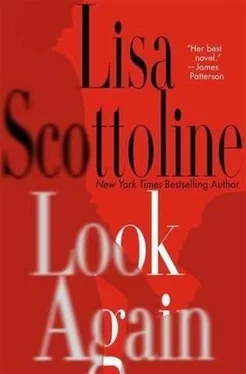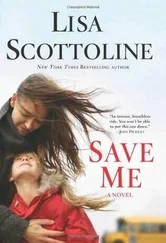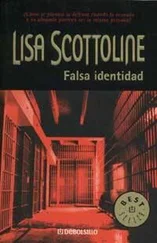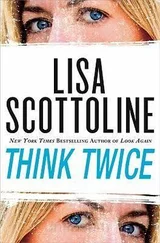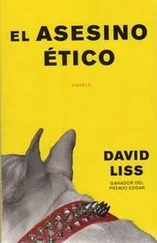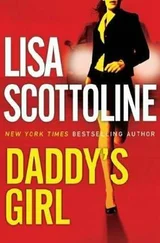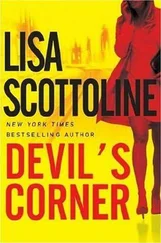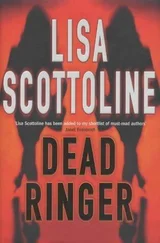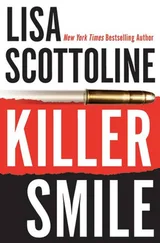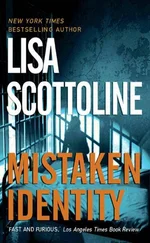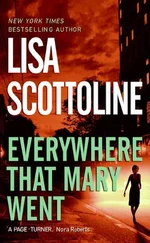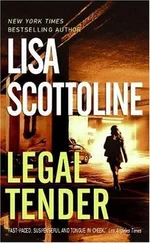Ellen made a note.
"Then we inject the fluid, and this machine does its work, replacing the blood with fluid." Ralston rested his small hand on a yellowish pump at the head of the table. "We insert a trocar, which punctures the viscera and removes fluid. We disinfect the cavities as well, then inject preservative and we pack the orifices."
Ellen wasn't about to ask.
"We wash the body again and apply lotion, to protect against dehydration. After death, the eyes begin to sink into the skull, and we pack cotton into the eye socket, place a plastic eyecap under the eyelid, then pull back the eyelid to apply adhesive and keep the eye closed."
Ellen's stomach turned over.
"Death also causes the facial muscles to relax, and the jaw drops open. We make the eyes and mouth as lifelike as possible. As we say, we set the features."
Ellen tried to remain professional. "Now, how was the procedure in Lateef's case?"
"With Lateef, there were so many gunshot wounds on one side of his face that we had to use his school photo as a guide and build from that foundation."
Ellen tried to visualize it. That little face, smiling from his memorial T-shirt. "Couldn't you use the other side of his face?"
"No. With as many gunshots as he had, there was significant facial swelling, which distorted even the good side of his face. The trauma, you understand. We use chemicals to reduce the swelling."
"How did you cover the bullet wounds?"
"On his face?" Ralston frowned. "You misunderstand me. There was no covering. There was nothing there. So in his case, we reconstructed. We snipped away the excess tissue around the wounds and glued the skin that was left to his cheekbone and eye socket."
Ellen didn't want to know more. Nobody should know this stuff. It was unthinkable. She couldn't help but think of losing Will this way. Of him being the child on the table. Of his beautiful face being the one glued together.
"We poured wax into the bullet holes to fill the gap and used cosmetics to match the shade of the wax to his skin, which was lighter than his mother. Some mortuaries have airbrushes, but we don't need that. I'm forty-two years in this business, and my father had it before me. We don't airbrush."
Ellen rallied at the businesslike note in his tone.
"The result wasn't perfect, but it was acceptable to Laticia and the family, and it gave them comfort, to see him as they knew him in life. Even my niece gave us a good grade."
"That's wonderful," Ellen said, with an admiration she didn't try to hide, but Ralston shrugged it off.
"Even for a single gunshot wound, we wouldn't cover it, that would never work. The putty would simply sink into the wound." He held up an index finger. "That's one thing I've had to order more of, wax and putty. We've already used four times the amount that we did last year, and the manufacturer can't keep it in stock. I have a friend in Newark, he's in the same bind."
Ellen scribbled away. These would be the effects of murder that would flesh out the story, from a tragic perspective.
"And all the eyecaps I have are too big for children. For Lateef and the others, we have to resize the eyecaps. Cut them down with scissors."
Ellen wrote that down, too. "I hope the day never comes when they make eyecaps for kids."
"I hear that." Ralston nodded. "In addition, with Lateef, we didn't use a wire in his mouth. We sutured the muscle and used adhesive, and it worked very well. He had so much bruising, but luckily, the displacement during the injection cleared a lot of that. That's what we'd hoped for."
"You use the word "we" a lot. Did you have help with Lateef?"
"My son John. We worked together." Ralston's tone softened. "We started at eight o'clock and we finished at dawn. My grandson, he's Lateefs age, and well, it wasn't easy for either John or me." He coughed slightly, and Ellen was about to ask a question, but held her tongue when she saw his head bow slightly and a stillness sweep over his slight frame. "Lateef, he's the one I'll never forget. I knew that boy. When he came in, looking the way he did, at first I didn't know what to do." Ralston shook his head, still downcast. "I didn't know what to do. I had to go outside. I stood in the back, by receiving. I asked the Lord to help me, to give me strength."
Ellen nodded. She didn't take a note. It would be off the record. It was too personal. Suddenly her cell phone rang, destroying the quiet and jarring them both. Embarrassed, she reached for her purse. "I'm so sorry," she said, digging. "I should have turned it off."
"Feel free to take the call." Ralston checked his watch, the moment having passed. "I should get back to work."
Ellen found the phone and switched it off, but not before she saw the area code. 302. Delaware.
Cheryl Martin.
Ellen tore south toward Wilmington, racing the rush hour. The sky had turned black, and snow flurries had begun to fall, flecks of white lace frozen in her headlights. The radio news was predicting a storm, and she felt as if she were outrunning that, too. She was in an uneasy state, hyper-excited, even after the long, sad afternoon. She couldn't remember the last time she'd eaten, but it didn't matter. She found herself accelerating, going to seventy miles an hour, then eighty. She wondered if she was speeding toward something. Or away.
Ellen found the house, parked at the curb, and looked out her car window. Cheryl's home was a lovely Tudor with a white stucco facade and dark brown trim, set among plenty of open space. A white sedan sat in a circular driveway, and the evergreens and hedges landscaping the property were dusted by new flurries, so that the scene looked like a suburban snow globe. She grabbed her bag and her file and got out of the car.
They were sitting in a beautiful living room, on an L-shaped sectional couch in an oatmeal fabric that coordinated perfectly with a nubby sisal rug. The lighting was recessed and the walls were eggshell white, adorned with horsey landscapes that would undoubtedly echo the view from the picture window.
Cheryl was saying, "I have to admit, part of the reason I wanted to meet you is because I read your articles."
"Thank you." Ellen remembered the photos of Cheryl Villiers, nee Martin, from her mother Gerry's house. Cheryl had been the pretty sister with large blue eyes and the sprinkling of freckles on a perfect nose, and in person, she resembled Will, despite the crow's-feet and the laugh lines bracketing her wide mouth.
"I even remembered the articles you wrote about adopting your baby, or Amy's baby. I reread them online after my mom called. I thought they were really good."
"Thanks."
"They had a photo of the baby in the paper. It's so strange to think that that little baby is Amy's. My new nephew. I just can't deal." Cheryl smiled uncomfortably, showing lightened teeth. "My mother said you showed her some court documents. Could I see them?"
"Yes, of course." Ellen dug in her purse and produced the adoption papers. "I really need to find Amy. I guess your mom told you, it's just to get some medical history. If you remember from the article, Will had a serious heart problem when I adopted him."
Cheryl read the papers, her head inclined at an inquisitive angle, so that her dark blond hair fell into her face. She had on a tan V-neck knit sweater, tight-fitting beige pants, and black leather flats.
"Do you think that's Amy's signature?"
"Yes, I do. It's absolutely her signature."
"How about on the consent form. Is that your signature?"
"No, I never signed this." Cheryl looked up, her eyes frank in light makeup, "She forged it."
"So what do you think's going on here?"
"Amy didn't want us to know about the baby, obviously."
Bingo. "What about this twisted ovary business?"
Читать дальше
